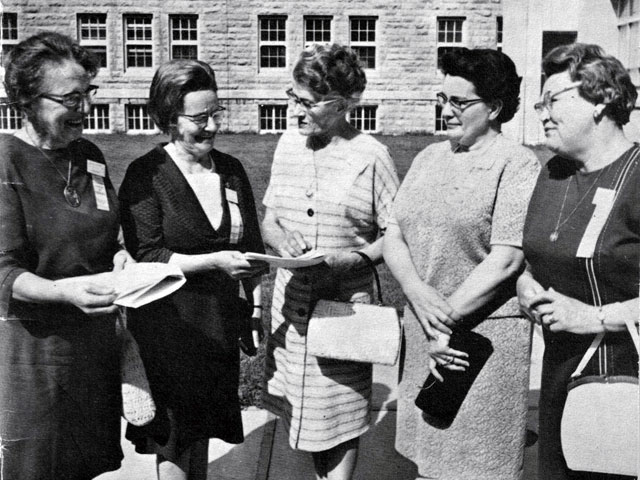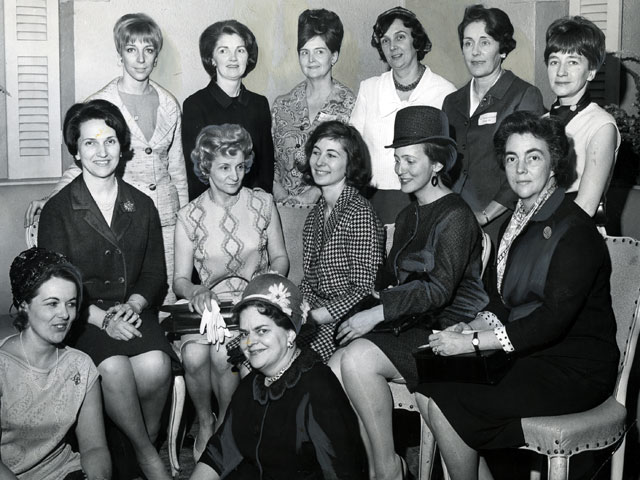Secondary Navigation Menu
Home > Events > Women's Revolution > Women Get Organized: the Foundation of Women's Associations
Women Get Organized: the Foundation of Women's Associations
Old Women's Associations
Women's associations had existed for a long time in Quebec. In the 19th century, there were philanthropic associations in the cities. Members were middle class women from French and English communities. In rural areas, associations flourished during the 20th century. There were farm women's circles as of 1915, branches of the Union catholique des fermières in 1944 – the female version of the Union catholique des cultivateurs (UCC) --, which became branches of the Union catholique des femmes rurales in 1957. During this last year, homemakers' circles emerged as well as the Ligue des femmes du Québec, a reform association of unionist women who embraced the communist movement.
The Emergence of a New Kind of Feminism
In the early 1960s, women's organizations were less dynamic than the organizations of the first half of the 20th century, which had battled for the right of women to vote, finally obtained under the Liberal government of Adélard Godbout. However, the slump was short-lived. With the effervescence of the Quiet Revolution, a new kind of feminism emerged. One of the first indications of what was to become known as neofeminism was the creation, at the initiative of Thérèse Casgrain, of the Fédération des femmes du Québec (FFQ) in 1966. The federation was run by women of various professional backgrounds and its purpose was to coordinate the actions of several women's associations directed at the recognition of the fundamental rights of women and the mitigation of various forms of discrimination against them. One offshoot was the Conseil du statut de la femme in 1973, a leading advisory agency. By the end of the 1970s, it grouped together 130 000 members from some 30 associations. Again, in 1966, branches of the Union catholique des femmes rurales and homemakers' circles united to form a new entity known as the Association féminine d'éducation et d'action sociale (AFÉAS). Members of the FFQ originated primarily from big cities, whereas AFÉAS recruiting took place in rural areas and small cities. By the end of the 1970s, the latter organization grouped together some 35 000 women from 600 circles who lobbied for women's rights and pressured local authorities.
More Radical Women's Organizations
In addition to the FFQ and AFÉAS, several other women's associations emerged at the end of the 1960s and during the next decade. Some were identified with the radical feminist movement known as the Front de libération des femmes du Québec and the Montreal Women's Liberation Movement. These organizations fought male domination.
Related events
Related events
- Greater Access of Women to Education
- Election of the First Woman to the Legislative Assembly
- Literature in Quebec
- The Decline of Religion
- The Advent of the Pill
- The Femmes d'aujourd'hui Show
- Women Storm the Labour Market
- The Bird Commission




